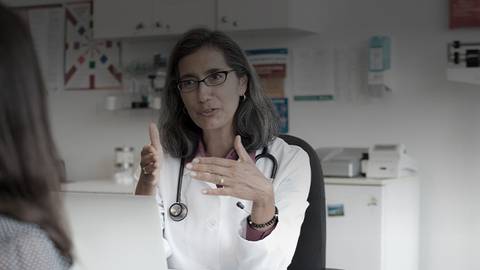Some of the most severe complications associated with ulcerative colitis are toxic megacolon, bleeding, fulminant colitis, and perforation of the bowel, while abscesses, intestinal bleeding, fistulas are more commonly associated with Crohn’s disease. While the development of emergency complications in IBD is uncommon, it can be life-threatening and result in permanent organ damage.
On this episode focusing on IBD emergencies, host Laura Wingate, Vice President of Education, Support, and Advocacy at the Crohn’s & Colitis Foundation, welcomes gastroenterologist Dr. Kim Isaacs, Professor of Medicine and Co-director of the UNC Multidisciplinary Center for IBD Research and Treatment at University of North Carolina–Chapel Hill.


Facebook Comments